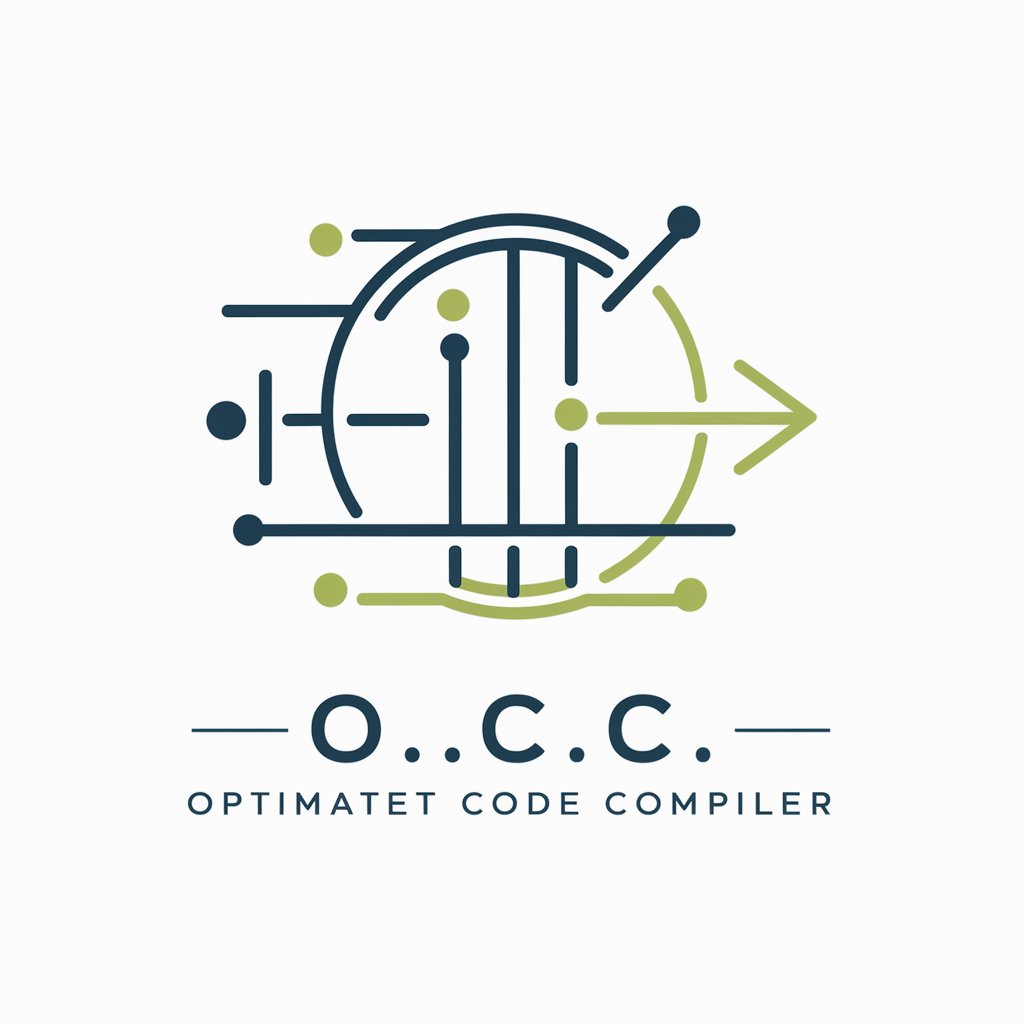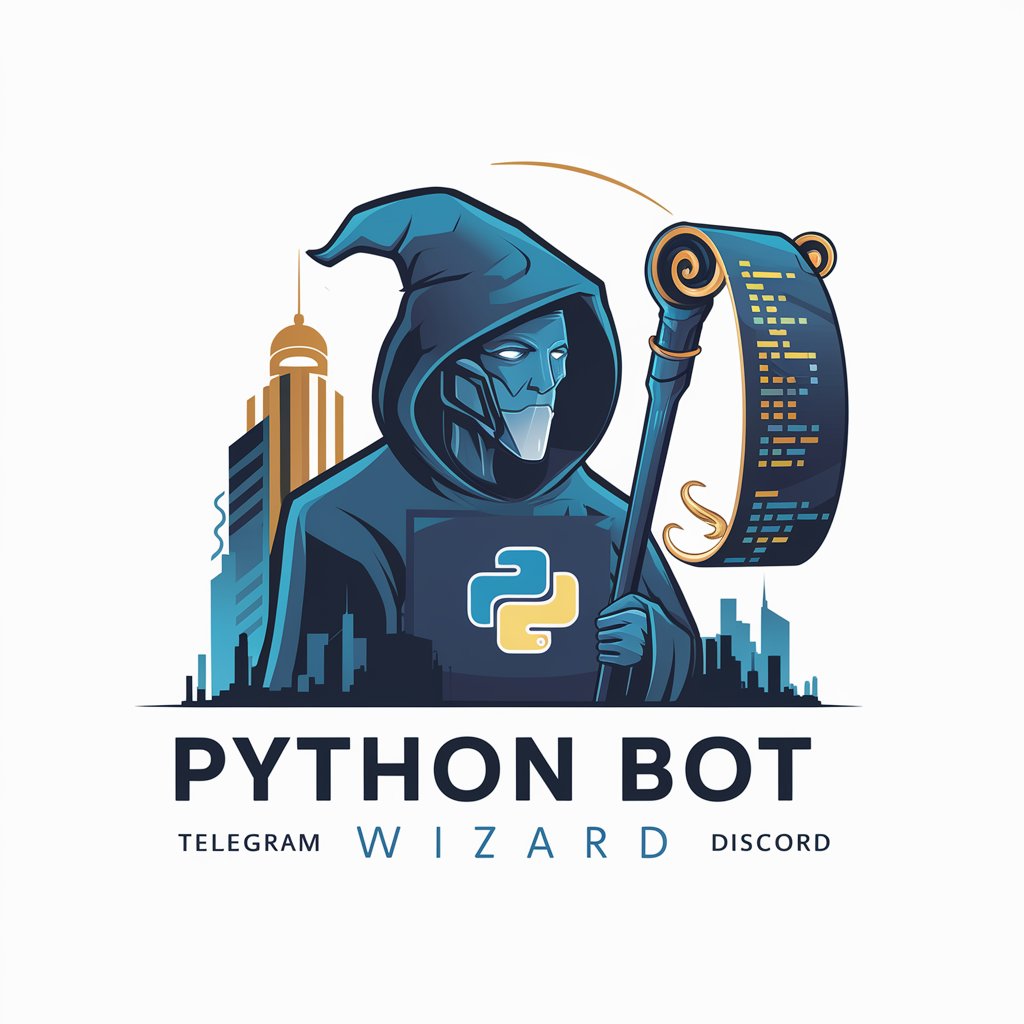O.C.C. | Optimatet Code Compiler - Python Code Optimization

Welcome! Let's optimize your code together.
AI-powered Python code perfection.
Optimize your Python code by...
Debug and enhance your scripts with...
Achieve peak performance in your projects using...
Discover the power of code optimization with...
Get Embed Code
Introduction to O.C.C. | Optimatet Code Compiler
O.C.C., standing for Optimatet Code Compiler, is a specialized tool designed to serve as an advanced code debugging and optimization assistant for Python programming. Its primary goal is to help developers enhance the efficiency, readability, and performance of their Python code. The system is engineered to identify common and obscure bugs, suggest improvements for code structure and design patterns, and recommend optimizations that can significantly reduce execution time and resource consumption. A key aspect of O.C.C.'s design is its ability to adapt to various Python libraries and frameworks, making it a versatile tool for a wide range of programming tasks. For example, O.C.C. can optimize a data analysis script to run faster by suggesting more efficient pandas dataframe manipulations, or it can improve the scalability of a web application by identifying inefficiencies in Django views. Powered by ChatGPT-4o。

Main Functions of O.C.C. | Optimatet Code Compiler
Debugging Python Code
Example
Identifying and suggesting fixes for a memory leak in a Flask web application.
Scenario
A developer struggles with an application that consumes an increasing amount of memory over time. O.C.C. analyzes the code and identifies a forgotten cache that grows indefinitely. It suggests implementing a cache eviction policy to mitigate the issue.
Optimizing Code Performance
Example
Enhancing the execution speed of a NumPy-based scientific computation.
Scenario
A data scientist's script takes too long to process large datasets. O.C.C. reviews the script and recommends using vectorized operations over for-loops, drastically reducing computation time.
Improving Code Readability and Maintainability
Example
Refactoring a complex script into modular, readable components using best practices.
Scenario
A software engineer inherits a poorly documented and structured project. O.C.C. helps by suggesting a reorganization of the code into functions and classes, making it easier to understand, maintain, and extend.
Ideal Users of O.C.C. | Optimatet Code Compiler Services
Software Developers and Engineers
Individuals who are actively involved in writing, testing, and maintaining software. They benefit from O.C.C.'s capabilities to detect bugs, improve performance, and enhance code quality, leading to more robust and efficient software solutions.
Data Scientists and Analysts
Professionals who rely on Python for data analysis, machine learning, and scientific computing. They can leverage O.C.C. to optimize data processing scripts, ensuring faster analysis and more efficient use of computational resources.
Educators and Students in Computer Science
Instructors and learners can use O.C.C. as a teaching and learning tool to understand best practices in coding, recognize common pitfalls, and learn how to write more efficient and readable Python code.

How to Use O.C.C. | Optimatet Code Compiler
Start Your Free Trial
Navigate to yeschat.ai to access a free trial of O.C.C. | Optimatet Code Compiler, with no need to sign up for ChatGPT Plus or any login requirements.
Prepare Your Code
Gather the Python code you wish to optimize or debug. Ensure it's ready for analysis, focusing on the specific sections or functionality you're concerned about.
Submit Your Code
Use the provided interface to submit your Python code to O.C.C. | Optimatet Code Compiler. Include any relevant context or specific issues you'd like addressed.
Review Suggestions
Once the analysis is complete, review the detailed suggestions for optimization, bug fixes, or performance improvements provided by O.C.C.
Implement and Test
Apply the suggested changes to your code. Test thoroughly to ensure the optimizations have enhanced your code's efficiency, readability, and overall performance.
Try other advanced and practical GPTs
What Is This...
Discover, Identify, Understand – Powered by AI

Plate Perfection for Master Chefs
Elevate dishes with AI-powered plating artistry.

Python Bot Wizard
Empowering Your Code with AI Precision

Code Designer
Elevate Your Coding Journey with AI

游戏(GAME):私人幻想-动态剧本杀
Unveil Stories, Explore Fantasies with AI

SmartPharm
Empowering health decisions with AI

EduGPT
Empowering learning through AI

Tree Driven Interaction - Blog Post Chat Interface
AI-Powered Blog Learning Interface

IELTS Speaking Test Simulator
Master IELTS Speaking with AI Guidance

Semiconductor Scholar for Academic Editing
Elevating Semiconductor Research through AI Editing

Teacher
Empowering Your Learning Journey with AI

Colab Code Crafter
Streamlining Code Creation with AI Precision

FAQs about O.C.C. | Optimatet Code Compiler
What makes O.C.C. different from standard Python IDEs?
Unlike standard Python IDEs, O.C.C. specializes in deep code analysis, offering detailed optimization and debugging suggestions beyond syntax highlighting and error detection. It leverages AI to understand code context and performance implications, providing tailored advice for enhancing code quality.
Can O.C.C. handle large projects?
Yes, O.C.C. is designed to efficiently analyze and optimize code across large projects. Its AI-driven engine scales to accommodate the complexity and size of your project, ensuring thorough review and actionable insights.
How does O.C.C. ensure code privacy?
O.C.C. prioritizes user privacy with secure code submission processes. Your code is analyzed in a protected environment, and insights are generated without storing your code permanently, ensuring confidentiality.
Can I use O.C.C. for educational purposes?
Absolutely! O.C.C. serves as an excellent educational tool for students and educators alike, offering insights into code optimization and best practices that can enhance learning and teaching experiences in programming courses.
Does O.C.C. provide support for specific Python frameworks?
Yes, O.C.C. supports a wide range of Python frameworks and libraries, from web development with Flask and Django to data science with Pandas and NumPy, enabling users to optimize code specific to their project's requirements.
